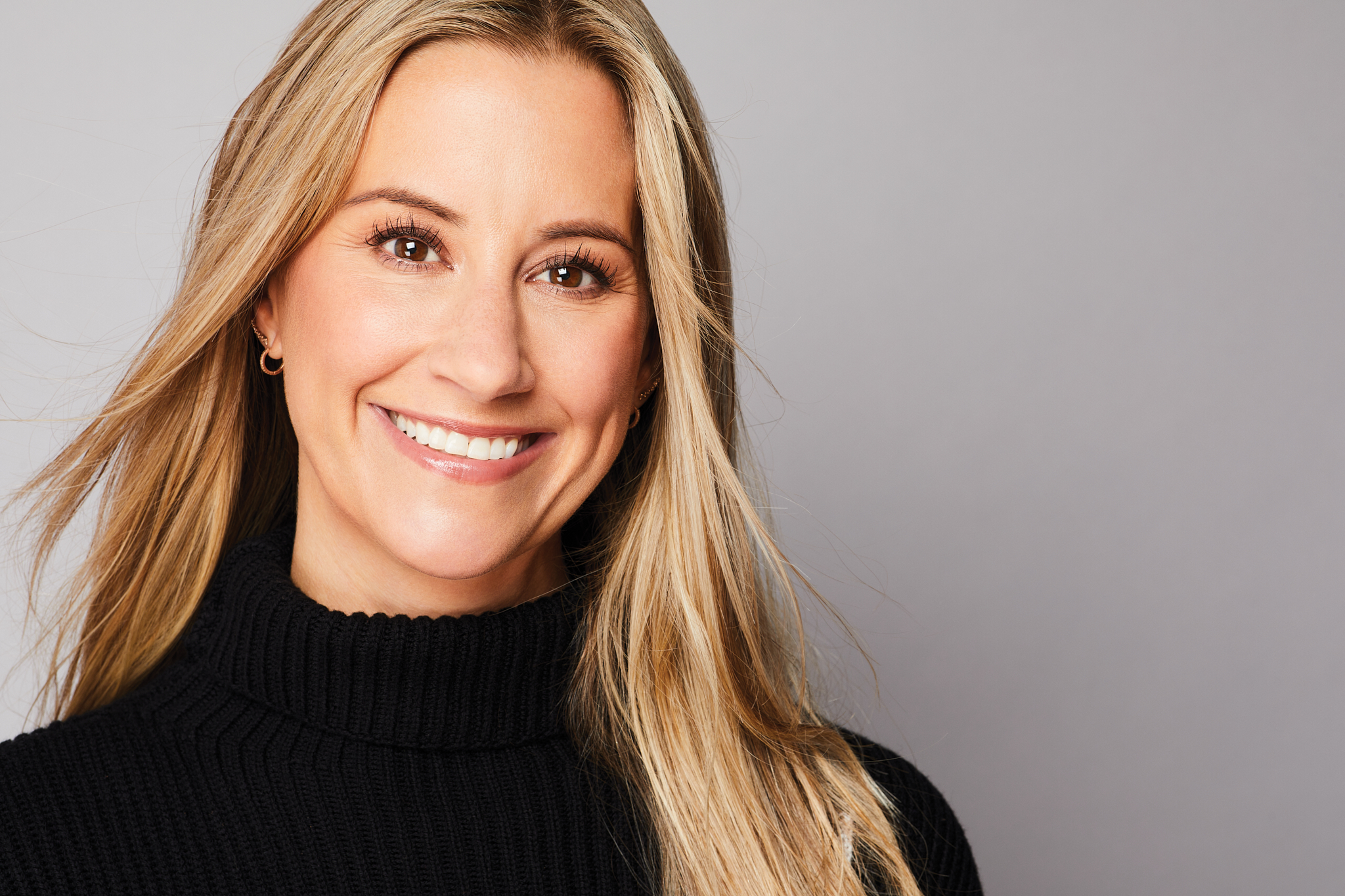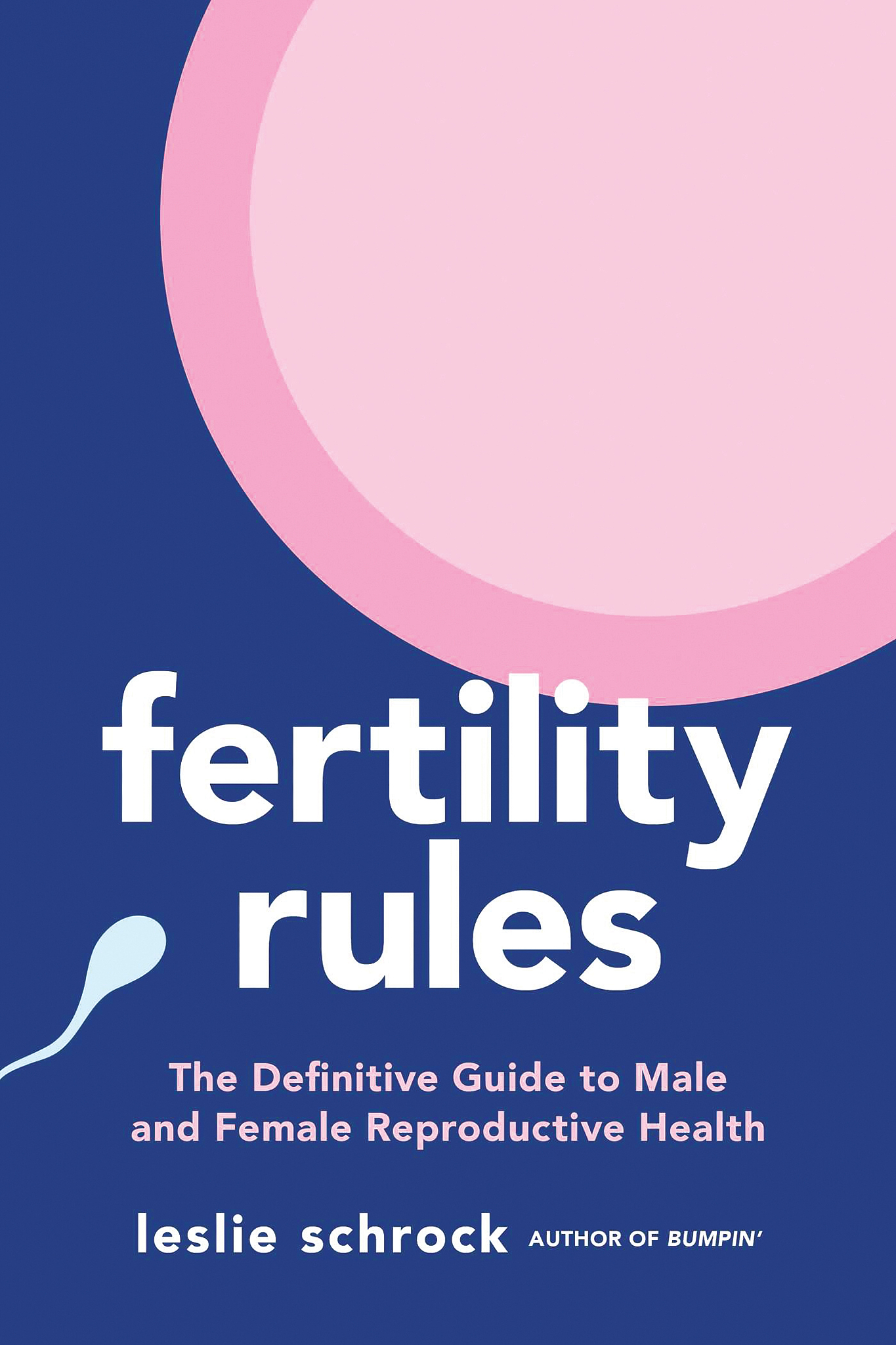A New Book Aims to Demystify Fertility and Its Industry

She worked as an art director at several top marketing firms. She’s an advisor to various early-stage startups. She helped launch a health startup accelerator that later partnered with some of the health industry’s biggest companies. She co-founded a company intending to bring edible insects (yes, you read that right) to the masses. And when Leslie Schrock, BS ’03, Life Member, got pregnant, she noticed all the pregnancy guides she was reading didn’t cut it for her, so she wrote the guide she wished she’d had to read. Now, her latest book is demystifying fertility for men and women.
Schrock has gone from a student in UT’s Texas Creative sequence, a prestigious program for advertising and public relations majors, to an angel investor, entrepreneur, and now an expert in the pregnancy and fertility space. Her first book, Bumpin’, was billed as a modern guide to pregnancy. Her latest book, Fertility Rules, is out June 6 from Simon & Schuster. And it truly is definitive. Divided into three parts, the book first tackles “what you may not know” and breaks down topics like the menstrual cycle, hormones, and birth control. The middle section explains how parents can optimize fertility through things like exercise, mental health, and nutrition. Then the final section, “Taking Action,” outlines fertility treatments, testing, and reproductive options for hopeful parents.
The Alcalde sat down with Schrock to discuss the book.
You studied advertising at UT—now you’ve published two books on pregnancy and fertility. How did you get here?
My career path was winding. Advertising taught me how to tell a good story, how to be curious, and how to ask questions and look for ways to relate to people. But then I encountered a problem that no one else was solving. I felt like there were so many pregnancy books out there that didn’t really talk to working moms. They didn’t really talk to partners. They didn’t really talk to people who wanted to take an active role in their own health, and I thought that that was a huge gap. So, after writing Bumpin’, I talked to people who had read it, and I realized two things: One is that no one really understands their bodies. They don’t understand things like ovulation or even how to get pregnant. The other is that I care deeply about maternal health, and I see what’s happening, and I don’t believe that we can really solve the problems we need to in maternal health without starting sooner.
What was your research process like?
I’m a big reader. I always have been. So, I read a ton on the topic from all different sources. I also interviewed more than a hundred people for this book. I talked to reproductive endocrinologists, nutritionists, fertility specialists, OBGYNs, pediatricians, people in functional medicine, people in nutrition, pelvic health specialists, and mental health specialists. I felt it was very important to represent a diverse group of opinions and then back it all with evidence. There are 20-something pages of references in the back for anyone who wants to get nerdy.

You have these asides in the book where you share bits of your personal pregnancy and fertility journey. Can you talk more about that?
I wanted there to be a clear delineation between scientific and medical facts, but also a nod to the fact that a human being wrote this. And a human being who had a very trying fertility journey, someone who understands firsthand. I thought it was important to also tell a real story.
Who do you hope reads this book?
My hope is that it’s approachable enough that anyone can read it. I wanted an adolescent girl who just got her period to be able to pick it up and understand from an early age the wealth of opportunities they have in front of them to make decisions about their bodies. Also, men are told even less about their bodies than women, so this book was also about understanding men’s health. My thesis is that if we just taught everyone the basics at a younger age, we’d be in a much better spot.
Why do you especially want men to read the book?
I think for men that don’t care about [their health] for their own sakes should care about it for the sake of their family. Unhealthy men who contribute unhealthy sperm also help make pregnancies unhealthy. So women have harder pregnancies. If you’re not going to do it for yourself, do it for your partner and do it for your future kids.
What should readers take away from this book?
I think the message is it’s never too late to do something. You may not have frozen your eggs in your 20s, but it’s never too late to make better decisions now. It’s never too late to take control of your health now, to take it more seriously, to invest in your body, to invest in your health, and to have conversations with your partner.
What do you want to see in the fertility industry in the years to come?
I hope that men take their seat at the table. I want men to start taking responsibility for their health and acknowledge that it doesn’t just affect them, it affects their families. Unhealthy men can’t do what they need to do as partners, as fathers, as anything else. Women end up having to take care of them. It just all makes life worse for women in the end. So, my number one goal is to let men know that their health matters, too. And then beyond that, I’d like to see more investment in studies of natural conception. The research that we have today is mostly derived from IVF data. We’re not really studying natural conception. I’d like to see more investment in that.
This interview has been edited and condensed.
CREDIT: Courtesy Leslie Schrock





